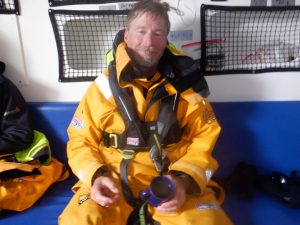International Law Enforcement Jobs


If you’re interested in pursuing an international law enforcement career, you should be aware of the opportunities available. This article will cover several such opportunities.
The FBI has legal attachés (known as “legats”) stationed at every embassy in the world. These individuals work with local law enforcement and prosecutors to pursue investigations that affect American interests abroad.
FBI Legal Attaches
The FBI’s international legal attaches, or legats, serve as the FBI’s liaison to foreign law enforcement agencies. Historically, legats were embedded special agents who served as covert informants to collect intelligence and uncover spy networks. Today, the position has evolved into an official liaison role that provides a direct conduit to investigate fugitives and other crimes.
Typical duties include coordinating requests for FBI assistance overseas; conducting investigations in coordination with host country authorities; sharing investigative leads and information; briefing Embassy counterparts from other law enforcement agencies, as appropriate, and Ambassadors; managing country clearances; providing situation reports concerning cultural protocol; assessing political and security climates; and coordinating victim and humanitarian assistance. Legats also provides training for graduates of the FBI National Academy and other criminal justice professionals from host countries.
The goal of legal attachés is to create a network that detects and deters international crime and terrorism before it strikes the United States. This is accomplished by establishing relationships with global law enforcement partners and building partnerships through international law enforcement training.
Interpol
You may think of Interpol as the organization that sends out police officers to bust people in different countries, but it isn’t an actual law enforcement agency. It’s an international clearinghouse for information. It lets British cops know when their French counterparts see something suspicious, for example. It also enables countries to swap information about fugitives.
Each member country has a domestic clearinghouse, known as the National Central Bureau (NCB), that is staffed by members of its own law enforcement agencies. NCBs serve as the point of contact for Interpol’s General Secretariat and regional offices when they receive requests from other countries.
To work for Interpol, you have to be a member of one of the 200 or so member nations. You also have to pass a written exam at an Interpol center or via video conference. Those who qualify are “seconded” to the organization from their own government or police departments. They get paid by their home agency, which also covers travel and insurance expenses.
United Nations Office on Drugs and Crime (UNODC)
Law enforcement professionals whose career plans include a desire to work internationally have a myriad of options. Many of these international jobs involve working with the United Nations.
The United Nations Office on Drugs and Crime (UNODC) is the lead UN agency in addressing the global challenges of illicit drugs, international crime, and terrorism. Its goal is to strengthen the ability of governments to tackle transnational organized crime and provide support in their ratification and implementation of different conventions, legislation, and treaties on the issue.
Its research and analysis of criminal typologies are essential tools in enabling law enforcement to respond more effectively to the threat of global organized crime. It also provides law enforcement agencies with modern technical training as well as assistance to improve the exchange of information between law enforcement and customs and border control authorities. In addition, UNODC helps countries develop alternatives to drug crop cultivation and conducts projects against money laundering.
The U.N.
Those with a passion for international law enforcement may find jobs within organizations of the United Nations. These organizations provide a world of opportunities for those who wish to see the world while they work to protect others from the ravages of criminal activity that knows no borders.
For example, UNODC facilitates regional and thematic partnerships to strengthen the response to terrorism, transnational organized crime, corruption, illicit trafficking in drugs and arms, and criminal justice reform. This includes establishing judicial platforms to enhance judicial cooperation and identify technical assistance needs.
It also promotes the Global Anti-Counterfeiting Network to support informal cross-border exchanges between law enforcement agencies to share knowledge, resources, and tools to track, investigate, and prosecute those who traffic illicit goods. These actions contribute to the achievement of Sustainable Development Goal 16.4 on reducing illicit flows of small arms and light weapons. By nature of their duties, law enforcement officials obtain information that may relate to the private lives of others. It is important that they exercise great care to ensure that such information is used only in the performance of their official responsibilities and not for other purposes.
